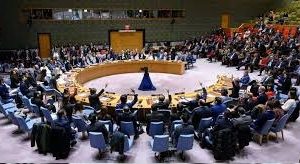
Ethiopia has long been recognized as a significant contributor to international peacekeeping efforts. Its commitment to global peace and security has earned the country a prominent reputation in the international community. Over the decades, Ethiopia’s peacekeeping missions have demonstrated its dedication to fostering stability in conflict zones, particularly within Africa. Its engagement in peacekeeping dates back to the 1950s. In 1951, Ethiopian troops were deployed as part of the United Nations Command during the Korean War, marking the country’s first international military engagement. This mission established Ethiopia as a reliable partner in maintaining global peace.
Ethiopian peacekeepers are known for their adherence to the principles of impartiality, respect for human rights, and cultural sensitivity. These qualities have earned them trust and respect in the regions where they operate. The successful containment of conflicts in Darfur and South Sudan is a testament to Ethiopia’s capability and dedication.
The country’s involvement in peacekeeping also reflects its broader strategic interests. By contributing to regional stability, Ethiopia seeks to prevent the spillover of conflicts into its own borders. Moreover, its active participation in peacekeeping enhances its international standing and fosters strong diplomatic ties with global powers and institutions.
Ethiopian soldiers played a critical role in stabilizing the region during a period of political turmoil, showcasing their discipline, professionalism, and commitment to humanitarian principles.
Ethiopia’s peacekeeping efforts are particularly significant within the African continent. As one of Africa’s most populous nations and a founding member of the African Union (AU), Ethiopia has been at the forefront of regional stabilization initiatives. Darfur, Sudan (UNAMID): Ethiopia has been a major troop contributor to the African Union-United Nations Hybrid Operation in Darfur (UNAMID), a mission aimed at protecting civilians and facilitating humanitarian aid in Sudan’s conflict-ridden region.
The country has also played a vital role in the United Nations Mission in South Sudan (UNMISS), deploying thousands of troops to help stabilize the country and support its peace process. Ethiopia’s proximity and historical ties to South Sudan have made its involvement particularly impactful. Ethiopia has been an integral part of the African Union Mission in Somalia (AMISOM) later ATMIS, combating the insurgency of Al-Shabaab and supporting Somalia’s transition towards stability and self-governance. Ethiopian forces have been pivotal in reclaiming key territories and securing peace agreements.
Just recently, the International Peace Support Training Institute (IPSTI) has graduated 27 of its students in Master’s Degree in peace and conflict management fields. Of which students, nine of them are from various African countries. The ceremony is its second cohort.
According to ENA, a local media house, Lieutenant General Yimer Mekonnen, The National Defense Forces (NDF) Training Head, during the graduation ceremony, expressed his hope that the graduates will play vital role in promoting peace and security not only in their country and the African continent, but also across the globe, stressing the urgency of peace and conflict management at this time when there are escalating crises in the region.
With a rich history of peacekeeping deployments dating back to the Korean War in 1951, Ethiopia has cemented its role as a trusted partner in the United Nations’ efforts to maintain international peace and security.
The National Defense Force’s (NDF) involvement in Somalia’s peacekeeping efforts has been significant. Since early 1990s, the NDF has been paying sacrifice in Somalia, contributing to the stabilization of the region and the restoration of the Somali government’s authority.
Through their tireless efforts, the NDF has been instrumental in securing key infrastructure, facilitating humanitarian aid delivery, and training local security forces, laying the groundwork for Somalia’s gradual recovery.
The Lt. General stated that the necessity of effective peace and conflict management is more urgent than ever as we witness escalating conflicts, humanitarian crises, and geopolitical tensions.
According to him, recent years have demonstrated that peace is not merely the absence of conflict but it is the presence of justice, understanding and cooperation. It is our collective responsibility to forge pathway towards harmony, understanding, and reconciliation, Lt. General Yimer added.
Japan’s Ambassador to Ethiopia, Hironori Shibata recalled that Ethiopia is a great country that significantly contributed its role to peacekeeping by sharing good experiences.
Japan has been supporting the IPSTI financially and in technical aspect, it was indicated. He reassured Japan’s continued support to Ethiopia’s endeavor in training personnel for peace keeping missions. He urged graduates to apply the knowledge and skills they have acquired for both continental and global peace and security.
In addition, Samuel Gbaydee Doe, Resident Representative for the United Nations Development Program (UNDP) in Ethiopia on his part stated that the institute is playing great role for peacekeeping.
“UNDP is proud to be associated with your remarkable achievements, and we eagerly look forward to seeing the positive impact you will bring to our continent and the world through your work with the United Nations and the African Union Peacekeeping nations across the world,” he said. The representative also acknowledged Ethiopia’s long experience in peacekeeping missions.
“I am from Liberia, and I have a personal experience with Ethiopian peacekeepers along with many from across the continent and the world brought peace to Liberia after 14 years of civil war. Today, Liberia is calling from that greater past. It is rising as one of the members of our continent. So let me take this opportunity to commend the government of Ethiopia and the Ministry of Defense for the foresight, to invest in this important training institute that has quickly gone to serve peacekeeping needs across our continent and beyond in the world,” he added.
He also said we also greatly valued and recognized the technical and financial support the Government of Japan has provided to the IPSTI, local and international training as well as the Masters’ program.
It is our sincere hope that investments made in IPSTI by the government of Ethiopia and its partners like Japan will go a long way in strengthening peacekeeping and the protection of human security by preventing violence across our continent and the world, especially violence against women, children and girls, the representative stressed.
The success of Ethiopia’s peacekeeping operations has not gone unnoticed by the international community. Their unwavering commitment to serving the greater good has earned them widespread international acclaim by the United Nations, the United States, Canada, and various military attachés lauding Ethiopia’s invaluable contribution to maintaining peace and security around the world.
BY STAFF REPORTER
THE ETHIOPIAN HERALD WEDNESDAY 20 NOVEMBER 2024




